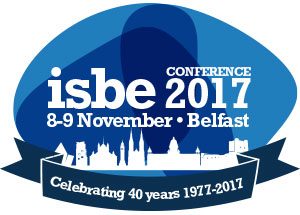Creative Industries Workshop
Thursday, 9th November, 11.30
Amsterdam One
Research Methodology for Publication in the Creative Industries
Creative industries are characterised by a high degree of individuality and innovation (Elsbach and Flynn, 2013; Lingo and O’Mahony, 2010). National economies have massively benefitted from the creative industries (United Nations, 2013); for instance, the British Department of Culture, Media and Sport has estimated that they generated gross value added of £ 87.4bn in 2015 an increase of 7 per cent since 2014 and 34 per cent since 2010 (DCMS, 2016).
Policy makers have monitored the evolution of these industries (DCMS, 2001, DCMS, 2010, DCMS, 2015; DCMS 2016) and scholars have increased their research interests providing valuable research insights to investigate entrepreneurship (Henry, 2007; Henry & de Bruin, 2011), entrepreneurial capability (Rae, 2004), enterprise curriculum within HE (Carey and Naudin, 2006), entrepreneurship education (Penaluna and Penaluna, 2009; Carey and Matlay, 2007, 2011), women leaders (Dodd, 2012), social inequalities (Ekhof and Warhusrt, 2013), crowd-funding (Jose Quero and Ventura, 2015; Hobbs, Grigore and Molesworth, 2016), open innovation (Mueller and Abecassis-Moedas, 2017) in the creative industries.
According to Corbett (2014: 250) “Entrepreneurship researchers attempting to publish in broad management journals need to take care to construct their manuscripts quite differently than when they are submitting to an entrepreneurship journal”. Corbett, Cornelissen, Delios and Harley (2014) noted that scholarly communities have contributed to international conversations since the 1990s and new areas of scholarly endeavour have emerged (Leung, 2012); the pressure to publish in highly regarded academic journals is higher and traditional academic debates seem to reward traditional research methods rather than innovative research methodologies that distinguish work carried out in the field of creative industries entrepreneurship (Carey, Romano & Penaluna, 2017) such as the use of narrative, storytelling and career histories (Carey, Romano & Penaluna, 2016).
The workshop investigates trends in the use of research methodologies and publications in creative industries entrepreneurship research. It will offer researchers an opportunity to explore and discuss the issues related to publishing entrepreneurship and creative industries research. This session is open to all but may be of particular interest to those looking to publish in the field of creative industries entrepreneurship.
Facilitators
Dr. Charlotte Carey
Dr. Carey is Senior Lecturer in Creative Industries Marketing at Birmingham City University Business School. She is the co-chair of the ISBE Conference Creative Industries track and a co-organiser of this workshop. She is a Fellow with the Higher Education Academy (HEA), a reviewer ISBE conferences and on the editorial review board for a number of entrepreneurship journals.
Charlotte can be contacted via:
Email:
LinkedIn: https://uk.linkedin.com/in/charlottecarey
Twitter: @charlottecarey
Web: http://www.bcu.ac.uk/business-school/about-us/our-staff/charlotte-carey
Dr. Stefania Romano, PhD, Fellow HE
Dr. Romano is a Lecturer in Innovation and Entrepreneurship at Edinburgh Napier University and a co-organiser of this workshop. She is a Fellow with the Higher Education Academy (HEA), a reviewer for BAM and ISBE conferences and she is in the editorial review board for the International Journal of Instructional Cases.
Stefania can be contacted via:
Email:
LinkedIn: https://www.linkedin.com/in/stefania-romano-324b4086/
Twitter: @rosestef22
Prof. Andy Penaluna
Andy Penaluna is the Director of the International Institute for Creative Entrepreneurship at the University of Wales TSD. He Chairs the QAA Enterprise and Entrepreneurship review panel and helps to develop national and international policy interventions.
Andy can be contacted at:
Email:
Twitter: @andypen
Web: http://www.uwtsd.ac.uk/iiced

